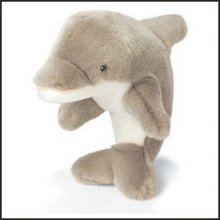
In the novella The Old Man and the Sea by Ernest Hemingway, the main character, an old fisherman named Santiago faces many external conflicts while trying to prove to himself and everyone else that even though he’s old, he can still fish. When he is faced with the great challenge of catching a great marlin, he must come to the harsh truth that he may, in fact, be too old to still fish.
One main thing that Santiago struggled with was his constant tiredness, which made him weaker than ever before. Santiago realizes that going without sleep could endanger his chances of catching the great fish, and make him seem like more of a failure. ‘“You must devise a way so that you sleep a little if he is quiet and steady. If you do not sleep you might become unclear in the head”’ (77). The old man understood the importance of sleep, and without it, it would cloud his brain, but since he hadn’t been sleeping, he was weak, and it was hard for him to fully use all of his strength.
Secondly, Santiago also struggled with a horrible hand cramp that temporarily paralyzed his ability to hold the fishing line to the best of his ability. Without the hand cramp, he could have easily killed the fish a little more quickly than he did. With his tiredness, and his hand cramp, he began talking to his hand, and trying to eat food to regain its strength. ‘“How do you feel hand?…I’ll eat some more for you”’ (59). Without the strength of his hand, he couldn’t fully handle the fish’s full force, and he was desperately trying to be able to gain back the power in his hand, so that he didn’t have to let go his fish. ‘“God help me to have the cramp go, because I do not know what the fish is going do to”’ (60).
A third thing that Santiago encountered on his trip was sharks attacking his fish. After he defeated all of his other problems and other people’s doubts, he finally killed his fish, which restored the pride in himself. ‘“My head is not that clear. But I think the great DiMaggio would be proud of me today”’ (97). Killing this fish gave him a sense of pride again, but this pride was soon replaced with anger and defeat again when some sharks came and proceeded to attack and tear apart at the fish. ‘“The old man’s head was clear and good now and he was full of resolution but he had little hope. It was too good to last, he thought”’ (101). The old man finally had caught a fish, and a good one at that, and he could finally be glad about it, and then, just like that, it gets taken away form him.
Santiago endured many struggles during his time fishing, and some of those were less serious than others, but overall, he trumped over them. Out of his cramped hand and tiredness, and got a nice fish out of it, and out of the sharks, he still got the respect of the other fishermen who had since lost faith in him. ‘“Many fisherman were around the skiff looking at what was lashed beside it and one was in the water, his trousers rolled up, measuring the skeleton with a length of line”’ (122). This shows that even though the old man endured some major setbacks, he could still come out of it okay, and with his pride back in check.



No comments:
Post a Comment